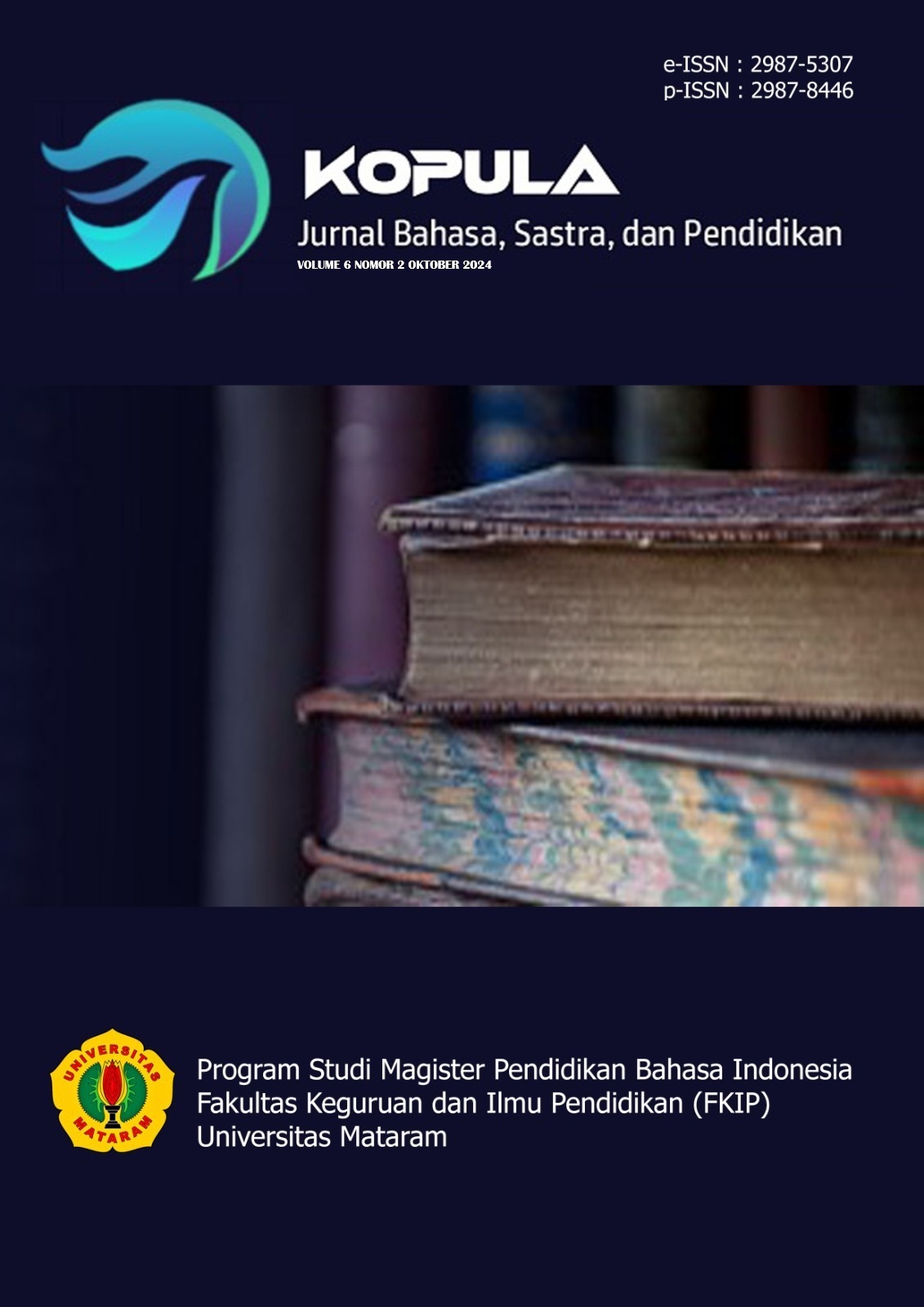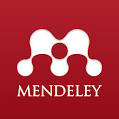Analisis Struktur Kalimat Majemuk dalam Berita “Mahasiswa UGM Raih Penghargaan Kompetisi Formula Internasional 2024” pada laman Kompas
DOI:
https://doi.org/10.29303/kopula.v7i2.6899Keywords:
analisis struktur kalimat, sintaksis, kalimat majemukAbstract
This study aims to analyze the structure of compound sentences in the news titled "UGM Students Win the 2024 International Formula Competition Award". This analysis was carried out to identify the form and pattern of the compound sentence structure in conveying information effectively. The method used in this study is by using a qualitative descriptive method with syntactic analysis techniques. The results of this study indicate that the news compound sentences are used to connect more complex ideas such as cause-effect relationships, additional information, and contrast. Compound sentences in this news can rely on coordinating conjunctions such as the words "and", "but", and the word "but" to clarify the relationship between events. In the use of this compound sentence can play an important role in maintaining the continuity of information, enriching the narrative, and improving the readability of the news text. This research is expected to contribute to the understanding of the syntactic structure of news texts in the context of the Indonesian language.
References
DEWI, R. (2013). KALIMAT TUNGGAL BAHASA INDONESIA: ANALISIS TRANSFORMASI GENERATIF (Doctoral dissertation, Universitas Hasanuddin).
Indrayanto, B. (2016). Verba Lokatif dalam Kalimat Tunggal Bahasa Jawa (Kajian Struktur Sintaksis). LINGUISTIK: Jurnal Bahasa dan Sastra, 1(1).
Korelasi Keterampilan Menyimak Teks Berita Dengan Keterampilan Menulis Teks Berita
Membaca Teks Berita Yustina RetnowatiOSF, 2019
Rachmawati, F., Maspuroh, U., & Adham, M. J. I. (2024). Analisis Struktur Jenis Kalimat Tunggl Dan Kalimat Majemuk Di Headline Radar Karawang Sebagai Pemanfaatannya Sebagai E-Modul. Jurnal Ilmiah Wahana Pendidikan, 10(3), 243-251.
Rumilah, S. (2021). Sintaksis pengantar kemahiran berbahasa Indonesia.
Sugiyono. Metode Penelitian Pendidikan Pendekatan Kuantitatif, Kualitatif, dan R&D. Jakarta: ALFABETA, cv, 2013.
Wahyuni Putri, Ellya Ratna Jurnal Pendidikan Bahasa Dan Sastra Indonesia 8 (3), 461-468, 2020
Downloads
Published
Issue
Section
License
Copyright (c) 2025 Dela Destiawati, Salza Della Apriliani, Niha Khoirunnisa, Iis Lisnawati

This work is licensed under a Creative Commons Attribution 4.0 International License.
Authors who publish with Kopula: Jurnal Pendidikan dan Bahasa, agree to the following terms:
- Authors retain copyright and grant the journal right of first publication with the work simultaneously licensed under a Creative Commons Attribution 4.0 International License (CC-BY License). This license allows authors to use all articles, data sets, graphics, and appendices in data mining applications, search engines, web sites, blogs, and other platforms by providing an appropriate reference. The journal allows the author(s) to hold the copyright without restrictions and will retain publishing rights without restrictions.
- Authors are able to enter into separate, additional contractual arrangements for the non-exclusive distribution of the journal's published version of the work (e.g., post it to an institutional repository or publish it in a book), with an acknowledgment of its initial publication in Kopula: Jurnal Pendidikan dan Bahasa.
- Authors are permitted and encouraged to post their work online (e.g., in institutional repositories or on their website) prior to and during the submission process, as it can lead to productive exchanges, as well as earlier and greater citation of published work (See The Effect of Open Access).










